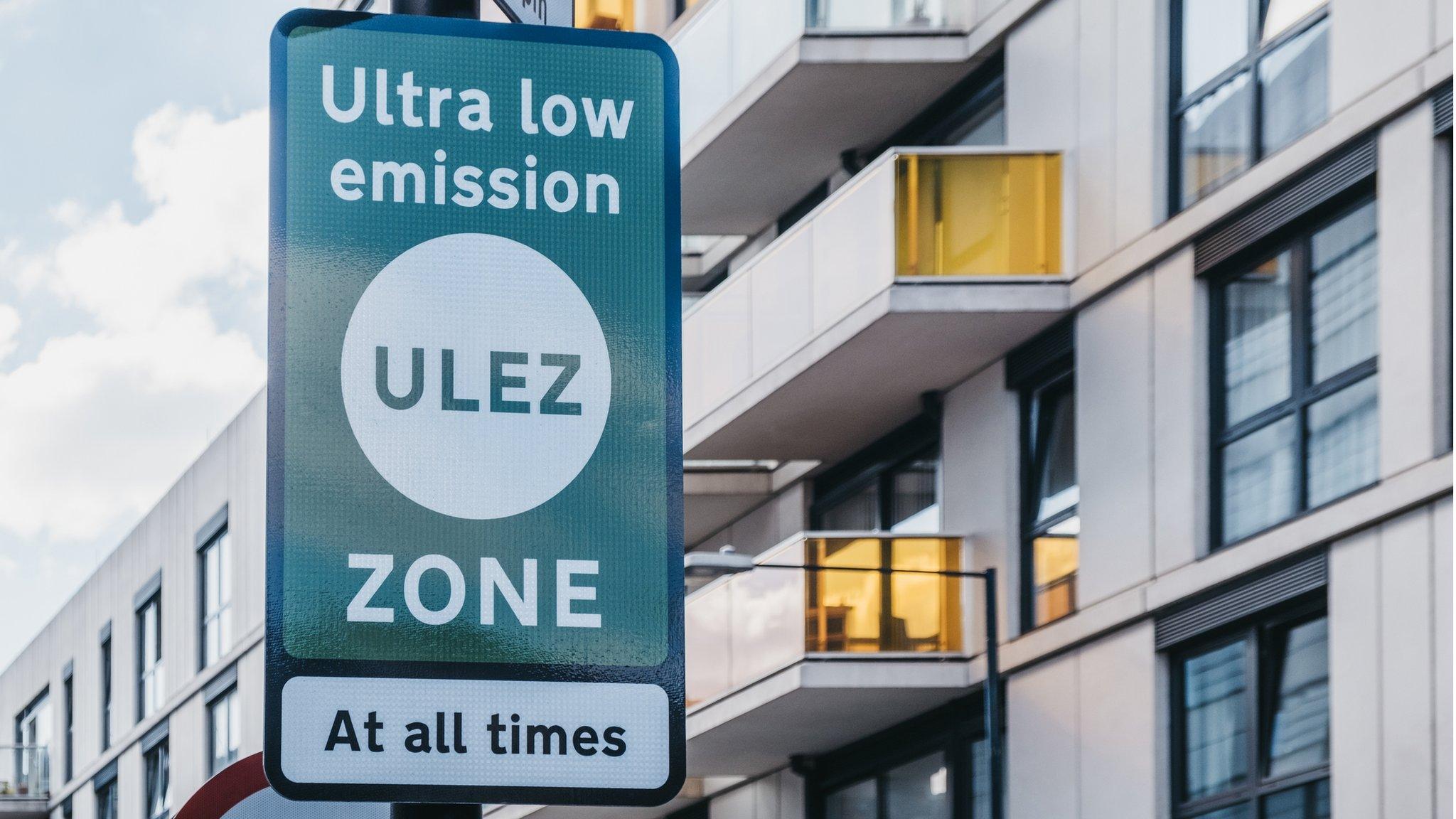ULEZ expansion: London Mayor Sadiq Khan and Martin Lewis clash
- Published
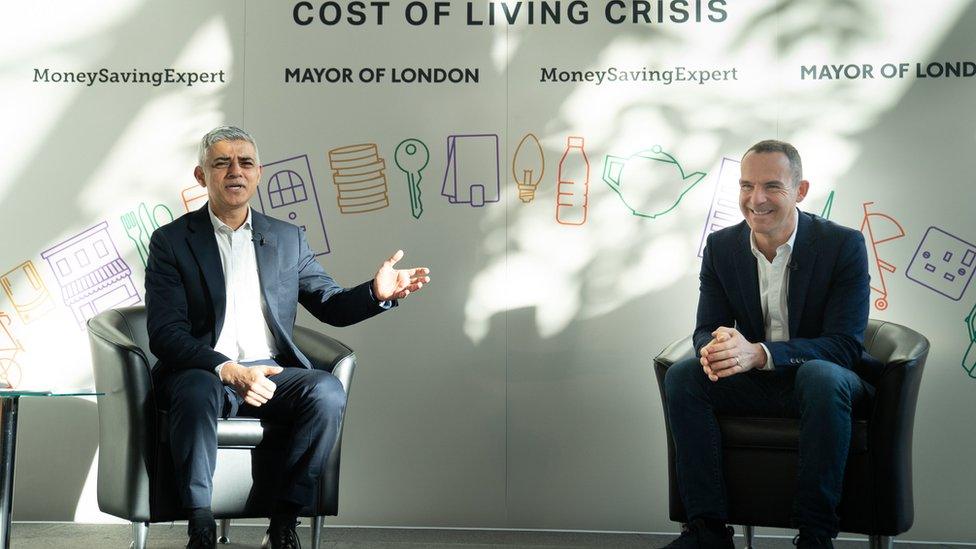
Sadiq Khan invited Martin Lewis to join him at the event
Consumer finance expert Martin Lewis has told an event in London the planned timing of a clear-air zone expansion in the capital "is pretty tough".
He was asked to join London Mayor Sadiq Khan at the event, aimed at addressing financial pressures faced by Londoners.
Mr Lewis pointed out poorer drivers would be hit more by the widening of the Ultra Low Emission Zone.
Mr Khan responded to Mr Lewis, saying: "What is the right number of people to die a year to make it acceptable?"
One angry attendee walked out of the event at City Hall as the controversial issue was discussed.
The mayor's flagship clean-air policy has been met with opposition from a number of London councils.
Responding to a question on the timing of the Ultra Low Emission Zone (ULEZ) expansion - due to come into place in August - Mr Lewis said: "If I may be honest, the reasons behind that are good, but the timing is pretty tough to do it this year amongst a cost-of-living crisis.
"For the 6% who have cars pre-2005 petrol or pre-2015 diesel, they will tend to be not the wealthiest because they haven't upgraded their car in that time."
'Con man'
Mr Khan responded: "When is the right time? I was told in 2017 that it wasn't the right time because of concerns around Brexit."
Following this remark, an audience member began shouting at Mr Khan over his plans before walking out and calling him "a con man".
The mayor has previously described the decision to widen the zone to cover all of London as "not easy but necessary to reduce the capital's toxic air pollution". A spokesperson for him said last month: "About 4,000 Londoners die prematurely each year due to the toxic air in our city and the mayor makes no apology for making the tough decision to expand the Ultra Low Emission Zone."
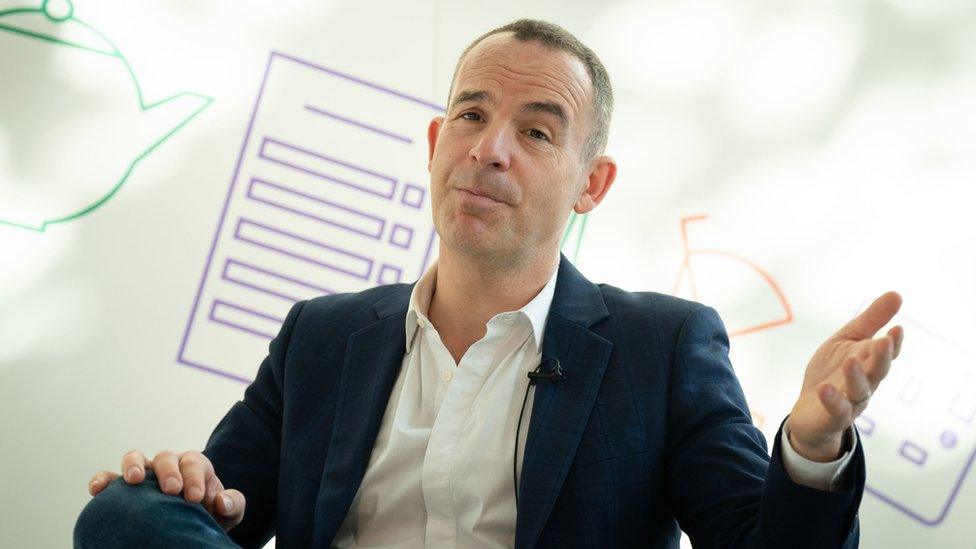
Martin Lewis is known as a money-saving guru
After the event, Angie Donnelley, 58, from Dagenham, told the BBC she had also been planning to heckle the mayor as "so many people can't afford the new vehicles - they can't afford to even live or dress themselves".
She added: "There are people who want to go and visit their loved ones' graves, and they have to pay £12.50. It's disgusting.
"How can one man dictate to Essex what to do when we aren't even in London?" (Dagenham has been a part of Greater London since 1965, but some people still regard it as being in Essex.)
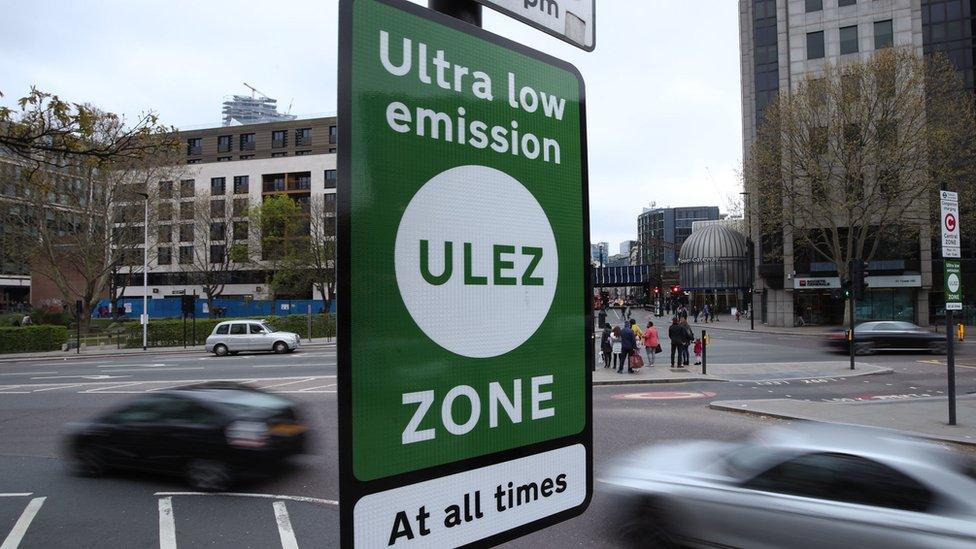
The Ultra Low Emission Zone (ULEZ) is set to cover outer London from 29 August
Although most London boroughs have signed an agreement with Transport for London (TfL) allowing it to install the ULEZ cameras, many still have reservations.
Eleven outer London councils have expressed concerns over the expansion, with many asking the mayor to delay or improve the scrappage scheme to support people during the cost-of-living crisis.
Some councils bordering London also have objections, with Surrey County Council saying it will not allow TfL warning signs.
'Consultation was fair'
The mayor had given four London Conservative councils until Thursday to sign a legal agreement allowing work to get under way to expand the zone.
The councils said they would not sign the agreement and have instead launched the first step of legal action.
In their pre-action protocol letter to the mayor and TfL, they cited four grounds for deeming the scheme "unlawful", including the lack of consultation with people living outside of London.
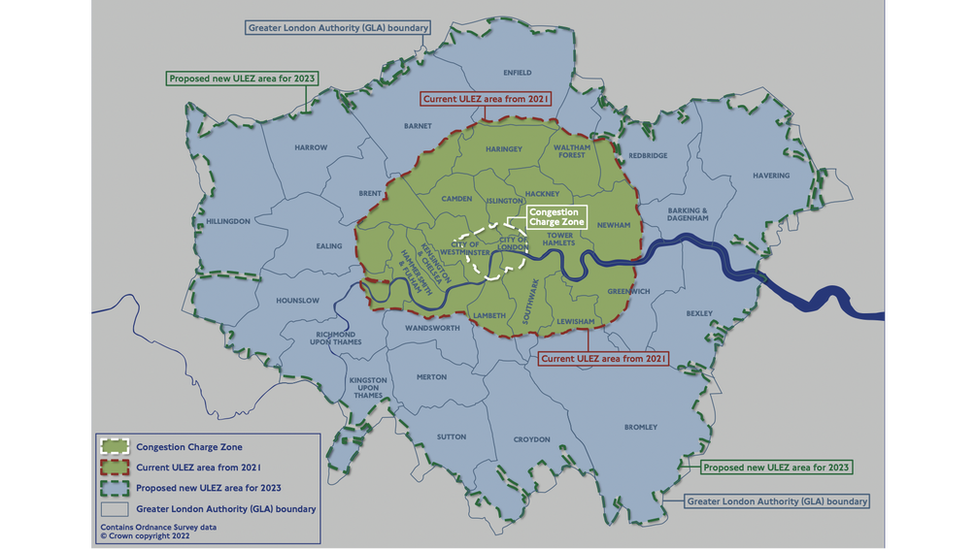
Poor public transport links in the outer London boroughs have been cited as a cause for concern by some councils
In its response to the boroughs' legal letter, TfL rejected all of the claims, insisting the decision to go ahead was "properly reasoned and rational, and the consultation was fair, with all responses conscientiously considered".
New City Hall polling from YouGov revealed that 17% of Londoners were financially struggling to make ends meet and going without essentials or relying on debt.
Half of Londoners had bought cheaper products to stretch their funds, and 45% said they used less water, fuel or energy to try to keep bills down, according to the poll.

Follow BBC London on Facebook, external, Twitter , externaland Instagram, external. Send your story ideas to hellobbclondon@bbc.co.uk, external
- Published2 February 2023
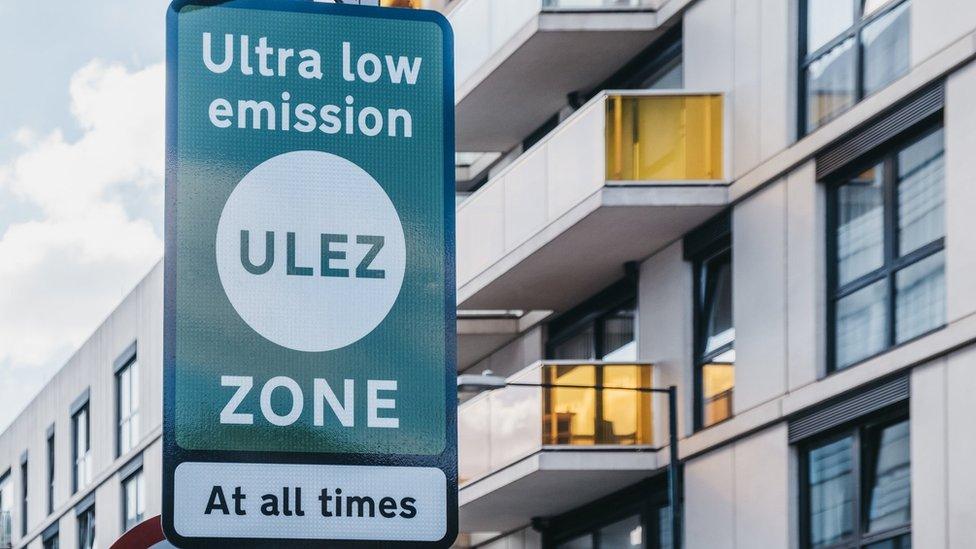
- Published1 February 2023
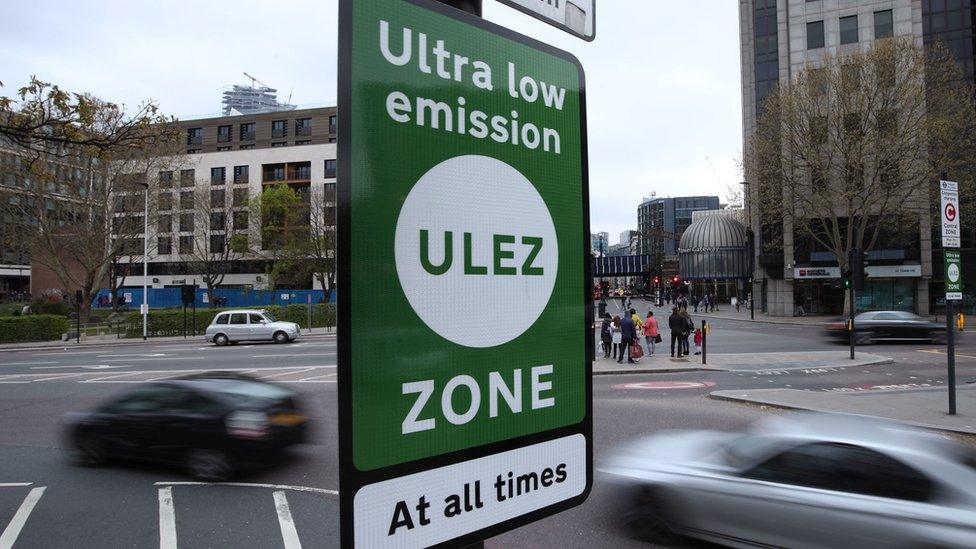
- Published30 January 2023
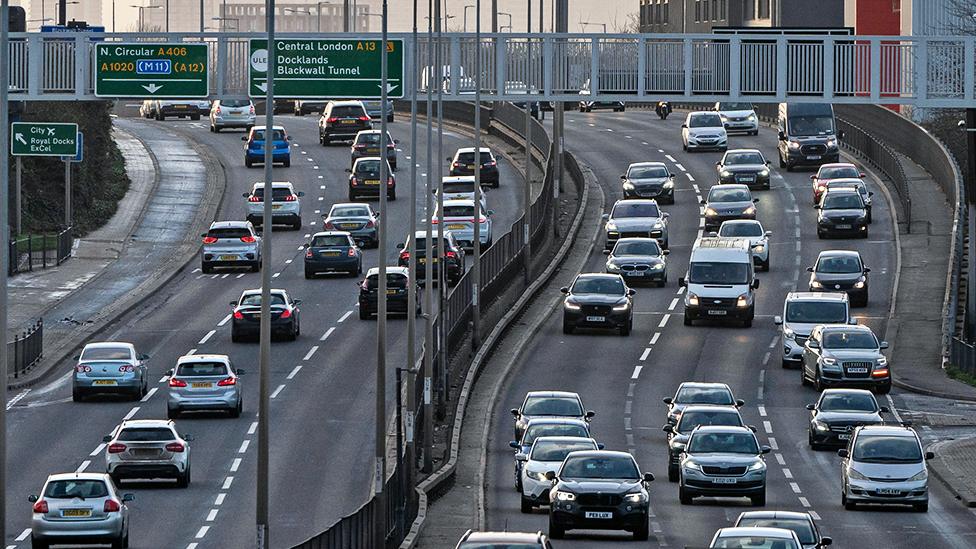
- Published29 January 2023
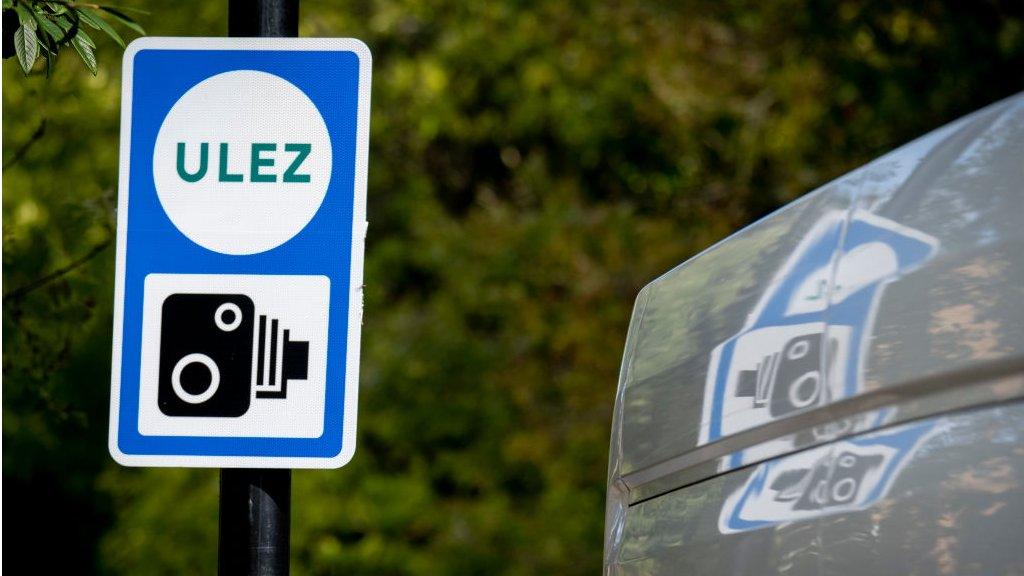
- Published26 January 2023
